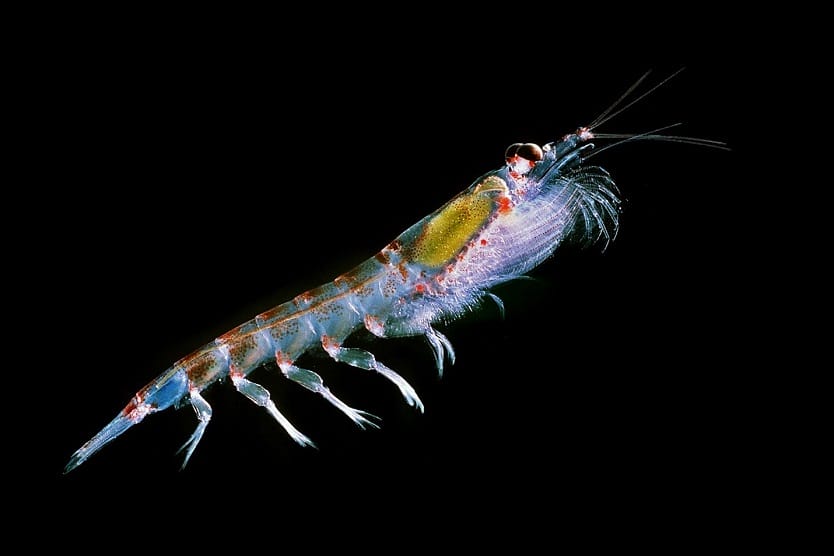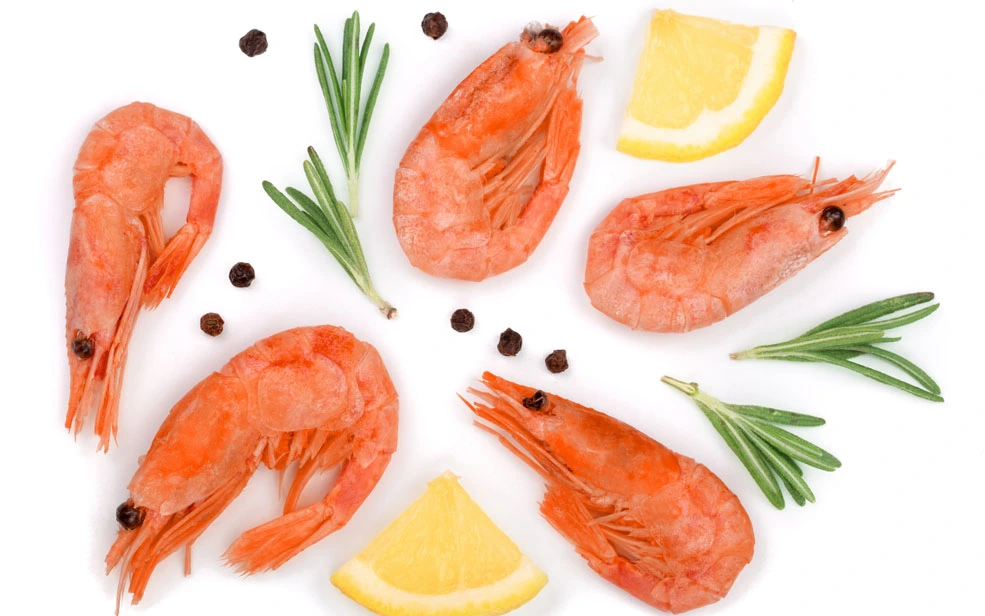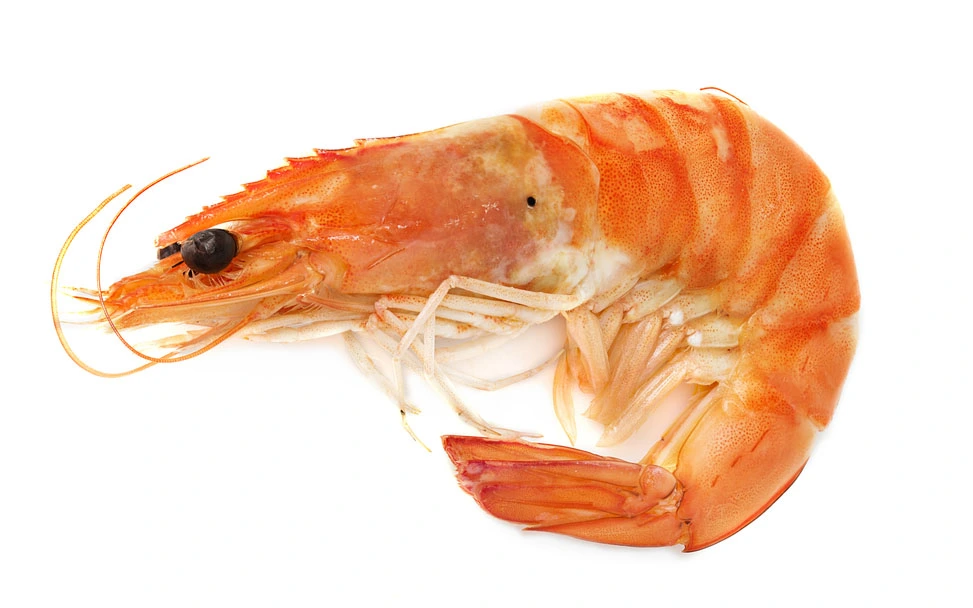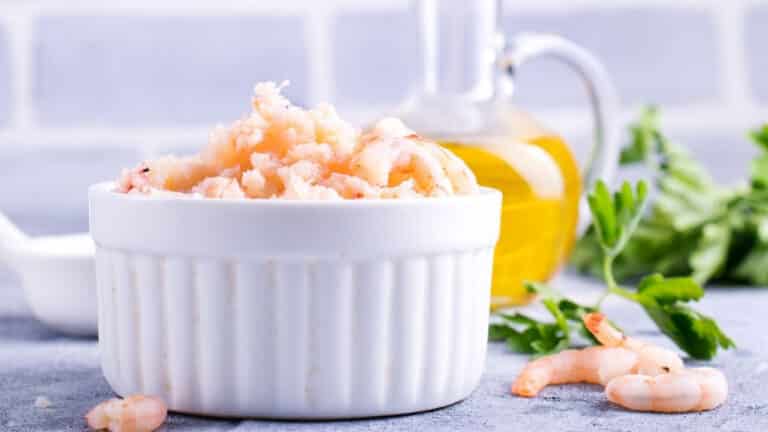Krill is a common name for any member of the crustacean order Euphausiacea and belongs to the same species class as crabs, lobsters, and crayfish. Similarly, shrimp and woodlice are also a part of the same species. There are over 82 species of krill that can grow up to 6 inches and live up to 10 years. They exist in dense swarms consisting of at least 10,000 krill on average in a single batch over a cubic meter of water.
Krill and Marine Ecosystem
Krill play an important part in the marine ecosystem for all types of marine life, especially large-sized species. Its placement in the food chain is also important as krill exists on the lower end of the marine system and does not consume other marine life for survival. Instead, krill eat algae and other plantations for its food source and can survive well on small intakes of food on average.
Planktons and Krill: Are they the same?
Krill are planktons but not all planktons are krill. Planktons are small marine organisms that cannot swim against the sea current due to their immobility or lack of strength. Therefore, the plankton species are categorized according to their food source. They have two basic groups based on their diet, Phytoplankton and Zooplankton.
Phytoplankton make their food by photosynthesis or chemosynthesis. However, the other species are heterophobic and consume other organisms to gain energy. Krill are the most important and ecologically significant species because they feed on Phytoplankton.
What Marine Life Consumes Krill?
Krill are food for several marine creatures including whales, penguins, and larger fishes as well as the largest animals to exist on the planet i.e., the blue whale.
What’s more interesting is that krill is now becoming a popular and safe food choice for humans as well. Krill meat has tons of nutritional benefits including protein, balanced amounts of omega-3, vitamin A iodine, etc.
These krill are harvested for human consumption in large quantities as they are a healthy source of nutrition. The krill is sold for its meat and to prepare krill oil, which has health benefits of its own and is a good alternative to fish oil.
Around 150–200,000 tonnes of krill are harvested during a year, but only a small percentage of this harvest is for human consumption, securing the sustainability of krill as instructed by Antarctic Marine Living Resources (CCAMLR). These krill also have medicinal uses as their enzymes help prepare several medications.
What Makes Them Important?
As discussed earlier, krill play an essential role in sustaining the Antarctic ecosystem as their population is massive. They have a formidable percentage in the ocean.
What’s more, the biomass of just one species in the Southern Ocean species, Euphausia Superba, is around 379,000,000 tons. They also help convert primary producers into food sources for species that cannot consume these smaller organisms.
The krill also exercise vertical migration, in which they migrate to the surface of the water during the day and then back to the depths of the ocean at night. This makes them an important food source in the marine ecosystem.
Benefits Of Krill To Humans
Rich Source of Omega-3 Fatty Acids: Krill oil is a potent source of omega-3 fatty acids, including EPA (eicosapentaenoic acid) and DHA (docosahexaenoic acid), which are essential for brain health, heart health, and reducing inflammation in the body.
Supports Heart Health: The omega-3 fatty acids found in krill oil have been shown to reduce triglyceride levels, lower blood pressure, and improve overall cardiovascular health, reducing the signs of high cholesterol and stroke.
Brain Function and Cognitive Health: Omega-3 fatty acids are vital for brain development and function. Consuming krill oil supports cognitive function, memory, and mood stability, and it may reduce the risk of age-related cognitive decline and neurodegenerative diseases like Alzheimer’s.
Joint Health and Mobility: Krill oil’s anti-inflammatory properties can help alleviate joint pain and stiffness associated with conditions like arthritis. It may also support joint flexibility and overall mobility, improving the quality of life for individuals with joint issues.
Skin Health: Omega-3 fatty acids are known for their skin-nourishing properties. Krill oil may help reduce inflammation in the skin, alleviate symptoms of eczema and psoriasis, and promote a healthy complexion by moisturizing and protecting the skin from oxidative damage.
Supports Eye Health: DHA, one of the omega-3 fatty acids found in krill oil, is essential for maintaining optimal vision and eye health. Consuming krill oil may reduce the risk of age-related macular degeneration (AMD) and support overall eye function and visual acuity.
Antioxidant Protection: Krill oil contains astaxanthin, a powerful antioxidant that helps protect cells from oxidative damage caused by free radicals. Astaxanthin’s potent antioxidant properties may reduce the risk of chronic diseases and support overall health and well-being.
Threats To Krill Populations
Despite their importance, krill populations face numerous threats, including climate change, overfishing, and habitat degradation. Climate change is altering the distribution and abundance of krill by affecting ocean temperature, sea ice coverage, and ocean currents. Overfishing, particularly in regions like Antarctica, poses a significant threat to krill populations and the marine ecosystems that depend on them.
Bottom Line
Krill have an essential role in the marine ecosystem for larger and smaller species alike. They are also a popular food source for humans because of their health benefits.
You can order your first batch of incredible edible krill at www.krillarcticfoods.com as we are the first providers of canned krill meat in the U.S.
Frequently Asked Questions
How Do Marine Fish Benefit From Krill?
Krill are an essential food source for many marine fish species. They provide a high-quality protein source and essential nutrients that support the growth and development of marine fish. Krill also contributes to the overall health and stability of marine ecosystems by maintaining the balance of the food web.
Which Marine Ecosystem Is Considered The Most Crucial?
The Southern Ocean, particularly around Antarctica, is often considered one of the most important marine ecosystems. It is home to abundant krill populations, which play a critical role in supporting the entire marine food web, including large marine mammals like whales, seals, and penguins. Additionally, the Southern Ocean helps regulate global climate patterns and sequesters carbon dioxide from the atmosphere.
Sources
https://www.discoverwildlife.com/animal-facts/insects-invertebrates/facts-about-krill/










